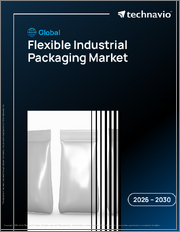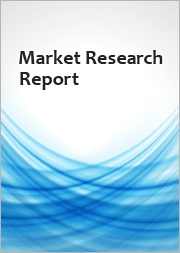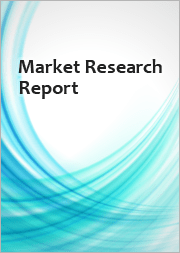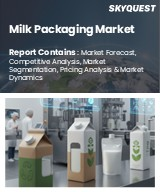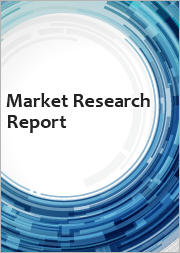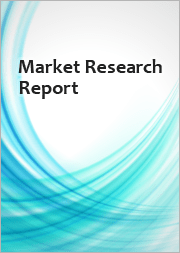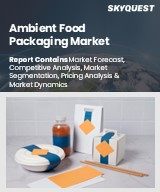
|
시장보고서
상품코드
1822480
연포장 시장 예측(-2032년) : 포장 유형별, 구조별, 인쇄별, 마개별, 실링별, 최종사용자별, 지역별 분석Flexible Packaging Market Forecasts to 2032 - Global Analysis By Packaging Type, Structure, Printing, Closure, Sealing, End User and By Geography |
||||||
Stratistics MRC에 의하면, 연포장 세계 시장은 2025년에 3,054억 달러에 달하고, 예측 기간 중 연평균 복합 성장률(CAGR) 4.8%로 2032년에는 4,241억 달러에 이를 전망입니다. 연포장은 플라스틱 필름, 호일 또는 종이와 같이 쉽게 변형되는 소재로 제작된 포장 형태로, 다양한 형태로 손쉽게 성형할 수 있습니다. 가벼운 특성, 비용 효율성 및 제품 무결성 유지 능력 덕분에 산업 전반에 걸쳐 널리 사용됩니다. 이 포장재는 내용물에 맞춰 효율적인 보관 및 운송을 제공합니다. 주요 용도로는 파우치, 백, 랩 등이 있으며, 수분, 산소, 오염물질로부터 보호하기 위한 차단 기능을 갖추어 유통기한과 사용성을 향상시키는 경우가 많습니다.
편리하고 가벼운 포장에 대한 수요 증가
식음료, 제약, 퍼스널케어 등의 업계에서는 파우치나 향 주머니와 같은 유연한 솔루션을 채택하여 제품의 접근성을 높이고 부피를 줄임으로써 제품의 가용성을 향상시키고 있습니다. 이러한 형태는 공간 효율성이 뛰어나고 운송 비용이 낮아 전자상거래 및 소매 유통에 이상적입니다. 또한, 도시형 라이프스타일과 이동이 잦은 소비 트렌드는 빠른 사용과 최소의 폐기물을 지원하는 포장에 대한 수요를 더욱 촉진하고 있습니다. 리지드 컨테이너에서 플렉서블 컨테이너로의 전환은 진열대에서의 어필을 최적화하고 재료 사용량을 줄이려는 제조업체들에 의해 추진되고 있습니다.
재활용의 과제와 인프라 부족
장벽 보호에 자주 사용되는 다층 소재는 기존의 재활용 시스템에서 분류 및 처리가 어렵습니다. 많은 지역에서 복잡한 포장 폐기물을 처리할 수 있는 인프라가 부족하여 매립 처리량이 증가하고 있습니다. 각국 정부는 브랜드에 소비자 사용 후 폐기물을 관리할 것을 요구하는 확대된 생산자 책임(EPR) 정책을 시행하고 있으며, 규제 압력이 증가하고 있습니다. 이러한 문제는 운영비용을 증가시킬 뿐만 아니라, 지속가능성을 중시하는 시장에서 유연한 포맷의 채택을 방해하는 요인으로 작용하고 있습니다.
인쇄 및 스마트 패키징의 기술적 진보
스마트 패키징은 센서, QR 코드, RFID 태그를 통합하여 제품 추적성, 신선도 모니터링, 소비자 참여를 강화합니다. 반면, 디지털 인쇄는 브랜드 스토리텔링과 한정판 캠페인에 대응할 수 있는 생생하고 커스터마이징이 가능한 디자인을 가능하게 합니다. 이러한 혁신은 안전성과 투명성이 가장 중요한 의약품이나 식품과 같은 분야에서 특히 가치가 높으며, 혼잡한 시장에서 브랜드의 경쟁력을 높여줍니다.
부정적인 사회적 인식
일회용 플라스틱과 재활용이 불가능한 라미네이트를 둘러싼 부정적인 감정이 구매 행동에 영향을 미치고 있으며, 많은 사람들이 지속 가능한 형태의 제품을 선택하고 있습니다. 소셜 미디어 캠페인과 NGO 주도의 이니셔티브가 인지도를 높이고 기업들에게 포장 전략을 재검토하도록 압박하고 있습니다. 이러한 우려에 대처하지 못하는 브랜드는 평판 훼손과 시장 점유율 하락의 위험을 감수해야 합니다. 규제 당국의 단속과 특정 유형의 플라스틱 사용 금지로 인해 공급망에 혼란을 초래하고 비용이 많이 드는 재설계를 강요할 수 있어 위협이 더욱 심각해지고 있습니다.
코로나19의 영향
코로나19 사태는 연포장 산업에 이중의 영향을 미쳐 공급 역학 및 소비자 기대치를 재구성했습니다. 처음에는 봉쇄와 노동력 부족으로 인해 생산과 물류에 혼란을 일으켜 지연과 자재 부족을 초래했습니다. 그러나 이 위기는 또한 식품, 건강 관리, 퍼스널케어 분야에서 위생적이고 개봉하기 쉬운 포장에 대한 수요를 가속화했습니다. 소비자들은 안전과 편리함을 우선시하여 일회용 포맷과 재밀봉 파우치의 채택을 촉진했습니다. 온라인 쇼핑의 급증은 운송을 견딜 수 있는 내구성 있고 가벼운 패키지에 대한 수요를 더욱 증가시켰습니다.
예측 기간 동안 플랫 파우치 및 향 주머니 부문이 가장 큰 부문이 될 것으로 예측됩니다.
플랫 파우치 및 향 주머니 부문은 다용도성, 비용 효율성, 광범위한 응용 분야로 인해 예측 기간 동안 가장 큰 시장 점유율을 차지할 것으로 예측됩니다. 이러한 포맷은 제품의 무결성을 유지하면서 간편한 분배를 제공하면서 제품의 무결성을 유지할 수 있기 때문에 식품, 의약품, 화장품에서 선호되고 있습니다. 컴팩트한 디자인은 보관 공간을 줄이고 휴대성을 높여 여행용 사이즈나 1회용 아이템에 이상적입니다. 또한, 씰링 기술과 배리어 필름의 발전으로 습기와 산소를 차단하는 성능도 향상되고 있습니다.
예측 기간 동안 다층 라미네이트 부문은 가장 높은 CAGR을 보일 것으로 예측됩니다.
예측 기간 동안 다층 라미네이트 부문은 우수한 보호 특성과 적응성으로 인해 가장 높은 성장률을 보일 것으로 예측됩니다. 이 라미네이트는 여러 소재를 결합하여 습기, 빛, 오염물질에 대한 내성을 강화하여 의약품이나 신선식품과 같은 섬세한 제품에 적합합니다. 재료 과학의 혁신은 성능 저하 없이 더 얇고 지속 가능한 라미네이트 구조를 가능하게 합니다. 신흥 시장에서의 유통기한 연장과 장벽이 높은 포장에 대한 수요는 성장을 더욱 촉진하고 있습니다.
가장 큰 점유율을 차지하는 지역
예측 기간 동안 북미는 성숙한 소비자 기반과 높은 제조 능력으로 인해 가장 큰 시장 점유율을 차지할 것으로 예측됩니다. 이 지역은 식품, 식음료, 헬스케어 분야가 활발한 수요의 혜택을 받고 있으며, 유연한 포맷의 편리함과 효율성으로 인해 선호도가 높은 지역입니다. 지속 가능한 포장에 대한 규제 당국의 지원과 연구개발에 대한 막대한 투자가 소재와 디자인 혁신을 촉진하고 있습니다. 또한, 이 지역에서는 브랜드 차별화와 프리미엄 포장이 강조되고 있어 시장 확대의 원동력이 되고 있습니다.
CAGR이 가장 높은 지역
예측 기간 동안 아시아태평양은 급속한 도시화, 가처분 소득 증가, 소매 인프라 확대로 인해 가장 높은 CAGR을 보일 것으로 예측됩니다. 중국, 인도, 인도네시아와 같은 국가에서는 기존의 비포장 상품에서 브랜드화된 포장 상품으로의 전환이 일어나고 있으며, 유연한 포맷에 대한 수요가 증가하고 있습니다. 식품 안전과 의약품에 대한 접근성을 높이기 위한 정부의 이니셔티브도 시장 성장에 기여하고 있습니다.
무료 커스터마이징 서비스
본 보고서를 구독하는 고객은 다음과 같은 무료 맞춤화 옵션 중 하나를 이용할 수 있습니다.
- 기업 소개
- 추가 시장 기업의 종합적인 프로파일링(최대 3개사까지)
- 주요 기업의 SWOT 분석(3개사까지)
- 지역 세분화
- 고객의 관심에 따른 주요 국가별 시장 추정, 예측, CAGR(주: 타당성 확인에 따라 다름)
- 경쟁사 벤치마킹
- 제품 포트폴리오, 지리적 입지, 전략적 제휴를 기반으로 한 주요 기업 벤치마킹
목차
제1장 주요 요약
제2장 서문
- 개요
- 이해관계자
- 조사 범위
- 조사 방법
- 데이터 마이닝
- 데이터 분석
- 데이터 검증
- 조사 접근
- 조사 자료
- 1차 조사 자료
- 2차 조사 정보원
- 전제조건
제3장 시장 동향 분석
- 성장 촉진요인
- 성장 억제요인
- 기회
- 위협
- 최종사용자 분석
- 신흥 시장
- COVID-19의 영향
제4장 Porter의 Five Forces 분석
- 공급 기업의 교섭력
- 바이어의 교섭력
- 대체품의 위협
- 신규 진출업체의 위협
- 경쟁 기업간 경쟁 관계
제5장 세계의 연포장 시장 : 포장 유형별
- 스탠드업 파우치
- 플랫 파우치 및 샤쉐
- 롤스톡 및 필름
- 백
- 뚜껑 및 씰
- 플렉서블 튜브
- 기타
제6장 세계의 연포장 시장 : 구조별
- 단일 소재 필름
- 다층 라미네이트
- 공압출 필름
제7장 세계의 연포장 시장 : 인쇄별
- 프렉소 인쇄
- 그라비어 인쇄
- 디지털 인쇄
- 하이브리드 인쇄
- 기타
제8장 세계의 연포장 시장 : 마개별
- 지퍼
- 재밀봉 테이프
- 스파우트
- Tear Notches
- 기타
제9장 세계의 연포장 시장 : 실링별
- Heat-Sealable Films & Coatings
- Vacuum / MAP Pouches
- Retortable Pouches
- Cold-seal Systems
- 기타
제10장 세계의 연포장 시장 : 최종사용자별
- 식품 및 음료
- 의약품 및 헬스케어
- 화장품 및 퍼스널케어
- 가정용품
- 산업 제품 및 화학제품
- E-Commerce
- 기타
제11장 세계의 연포장 시장 : 지역별
- 북미
- 미국
- 캐나다
- 멕시코
- 유럽
- 독일
- 영국
- 이탈리아
- 프랑스
- 스페인
- 기타 유럽
- 아시아태평양
- 일본
- 중국
- 인도
- 호주
- 뉴질랜드
- 한국
- 기타 아시아태평양
- 남미
- 아르헨티나
- 브라질
- 칠레
- 기타 남미
- 중동 및 아프리카
- 사우디아라비아
- 아랍에미리트
- 카타르
- 남아프리카공화국
- 기타 중동 및 아프리카
제12장 주요 발전
- 계약, 파트너십, 협업 및 합작투자(JV)
- 인수와 합병
- 신제품 발매
- 사업 확대
- 기타 주요 전략
제13장 기업 프로파일링
- Amcor plc
- Mondi Group
- Berry Global Group, Inc.
- Sealed Air Corporation
- Constantia Flexibles
- Huhtamaki Oyj
- Sonoco Products Company
- ProAmpac
- TC Transcontinental Inc.
- DS Smith plc
- Novolex
- UFlex Ltd.
- Coveris Holdings S.A.
- WestRock Company
- Smurfit Kappa Group plc
- Bischof+Klein SE & Co. KG
- Printpack, Inc.
- Ahlstrom
- Jindal Poly Films Ltd.
- CCL Industries Inc.
According to Stratistics MRC, the Global Flexible Packaging Market is accounted for $305.4 billion in 2025 and is expected to reach $424.1 billion by 2032 growing at a CAGR of 4.8% during the forecast period. Flexible packaging is a form of packaging made from easily yielding materials such as plastic films, foils, or paper, which can be readily shaped into various configurations. It is widely used across industries due to its lightweight nature, cost-effectiveness, and ability to preserve product integrity. This packaging adapts to contents, offering efficient storage and transportation. Common applications include pouches, bags, and wraps, often designed with barrier properties to protect against moisture, oxygen, and contaminants, enhancing shelf life and usability.
Market Dynamics:
Driver:
Growing demand for convenient and lightweight packaging
Industries such as food, beverages, pharmaceuticals, and personal care are adopting flexible solutions like pouches and sachets to enhance product accessibility and reduce bulk. These formats offer superior space efficiency and lower transportation costs, making them ideal for e-commerce and retail distribution. Moreover, urban lifestyles and on-the-go consumption trends are fueling the need for packaging that supports quick usage and minimal waste. The shift from rigid containers to flexible alternatives is also driven by manufacturers aiming to optimize shelf appeal and reduce material usage.
Restraint:
Recycling challenges and lack of infrastructure
Multi-layered materials, often used for barrier protection, are difficult to separate and process through conventional recycling systems. Many regions lack the infrastructure to handle complex packaging waste, leading to increased landfill accumulation. Regulatory pressures are mounting, with governments enforcing extended producer responsibility (EPR) policies that require brands to manage post-consumer waste. These challenges not only elevate operational costs but also hinder the adoption of flexible formats in sustainability-focused markets.
Opportunity:
Technological advancements in printing and smart packaging
Smart packaging integrates sensors, QR codes, and RFID tags to enhance product traceability, freshness monitoring, and consumer engagement. Meanwhile, digital printing allows for vibrant, customizable designs that cater to brand storytelling and limited-edition campaigns. These innovations are especially valuable in sectors like pharmaceuticals and food, where safety and transparency are paramount offering brands a competitive edge in crowded marketplaces.
Threat:
Negative public perception
Negative sentiment around single-use plastics and non-recyclable laminates is influencing purchasing behavior, with many opting for products in sustainable formats. Social media campaigns and NGO-led initiatives are amplifying awareness, pressuring companies to rethink their packaging strategies. Brands that fail to address these concerns risk reputational damage and loss of market share. The threat is compounded by regulatory crackdowns and bans on certain plastic types, which could disrupt supply chains and force costly redesigns.
Covid-19 Impact:
The COVID-19 pandemic had a dual impact on the flexible packaging industry, reshaping both supply dynamics and consumer expectations. Initially, lockdowns and labor shortages disrupted manufacturing and logistics, leading to delays and material scarcities. However, the crisis also accelerated demand for hygienic, tamper-evident packaging across food, healthcare, and personal care sectors. Consumers prioritized safety and convenience, driving adoption of single-use formats and resealable pouches. The surge in online shopping further boosted the need for durable, lightweight packaging that could withstand transit.
The flat pouches & sachets segment is expected to be the largest during the forecast period
The flat pouches & sachets segment is expected to account for the largest market share during the forecast period due to their versatility, cost-effectiveness, and widespread application. These formats are favored in food, pharmaceuticals, and cosmetics for their ability to preserve product integrity while offering easy dispensing. Their compact design reduces storage space and enhances portability, making them ideal for travel-size and single-use items. Additionally, advancements in sealing technologies and barrier films have improved their performance in moisture and oxygen protection.
The multilayer laminates segment is expected to have the highest CAGR during the forecast period
Over the forecast period, the multilayer laminates segment is predicted to witness the highest growth rate driven by their superior protective properties and adaptability. These laminates combine multiple materials to offer enhanced resistance against moisture, light, and contaminants, making them suitable for sensitive products like pharmaceuticals and perishable foods. Innovations in material science are enabling thinner, more sustainable laminate structures without compromising performance. The demand for extended shelf life and high-barrier packaging in emerging markets is further propelling growth.
Region with largest share:
During the forecast period, the North America region is expected to hold the largest market share attributed to its mature consumer base and advanced manufacturing capabilities. The region benefits from strong demand across food, beverage, and healthcare sectors, where flexible formats are preferred for their convenience and efficiency. Regulatory support for sustainable packaging and high investment in R&D are driving innovation in materials and design. Additionally, the region's emphasis on brand differentiation and premium packaging continues to fuel market expansion.
Region with highest CAGR:
Over the forecast period, the Asia Pacific region is anticipated to exhibit the highest CAGR fueled by rapid urbanization, rising disposable incomes, and expanding retail infrastructure. Countries like China, India, and Indonesia are witnessing a shift from traditional unpackaged goods to branded, packaged products, boosting demand for flexible formats. Government initiatives promoting food safety and pharmaceutical access are also contributing to market growth.
Key players in the market
Some of the key players in Flexible Packaging Market include Amcor plc, Mondi Group, Berry Global Group, Inc., Sealed Air Corporation, Constantia Flexibles, Huhtamaki Oyj, Sonoco Products Company, ProAmpac, TC Transcontinental Inc., DS Smith plc, Novolex, UFlex Ltd., Coveris Holdings S.A., WestRock Company, Smurfit Kappa Group plc, Bischof + Klein SE & Co. KG, Printpack, Inc., Ahlstrom, Jindal Poly Films Ltd. and CCL Industries Inc.
Key Developments:
In August 2025, Constantia Flexibles acquired Aluflexpack and invested over €100 million to expand its global production network. It launched new mono-material solutions like EcoLamHighPlus and EcoVerHighPlus at FACHPACK 2025.
In July 2025, Huhtamaki introduced compostable and recyclable ice cream cups made from bio-based coated paperboard. The cups meet home and industrial composting standards, expanding Huhtamaki's sustainable foodservice portfolio.
In July 2025, UFlex showcased FlexiTubes with USFDA-approved recycled content at CMPL Expo 2025. These tubes support Extended Producer Responsibility and reduce plastic waste. They reflect UFlex's commitment to circular packaging innovation.
Packaging Types Covered:
- Stand-Up Pouches
- Flat Pouches & Sachets
- Rollstock/Films
- Bags
- Lidding & Seals
- Flexible Tubes
- Other Packaging Types
Structures Covered:
- Mono-Material Films
- Multilayer Laminates
- Co-Extruded Films
Printings Covered:
- Flexographic Printing
- Gravure Printing
- Digital Printing
- Hybrid Printing
- Other Printings
Closures Covered:
- Zippers
- Resealable Tapes
- Spouts
- Tear Notches
- Other Closures
Sealings Covered:
- Heat-Sealable Films & Coatings
- Vacuum / MAP Pouches
- Retortable Pouches
- Cold-seal Systems
- Other Sealings
End Users Covered:
- Food & Beverage
- Pharmaceuticals & Healthcare
- Cosmetics & Personal Care
- Household Care
- Industrial & Chemicals
- E-commerce
- Other End Users
Regions Covered:
- North America
- US
- Canada
- Mexico
- Europe
- Germany
- UK
- Italy
- France
- Spain
- Rest of Europe
- Asia Pacific
- Japan
- China
- India
- Australia
- New Zealand
- South Korea
- Rest of Asia Pacific
- South America
- Argentina
- Brazil
- Chile
- Rest of South America
- Middle East & Africa
- Saudi Arabia
- UAE
- Qatar
- South Africa
- Rest of Middle East & Africa
What our report offers:
- Market share assessments for the regional and country-level segments
- Strategic recommendations for the new entrants
- Covers Market data for the years 2024, 2025, 2026, 2028, and 2032
- Market Trends (Drivers, Constraints, Opportunities, Threats, Challenges, Investment Opportunities, and recommendations)
- Strategic recommendations in key business segments based on the market estimations
- Competitive landscaping mapping the key common trends
- Company profiling with detailed strategies, financials, and recent developments
- Supply chain trends mapping the latest technological advancements
Free Customization Offerings:
All the customers of this report will be entitled to receive one of the following free customization options:
- Company Profiling
- Comprehensive profiling of additional market players (up to 3)
- SWOT Analysis of key players (up to 3)
- Regional Segmentation
- Market estimations, Forecasts and CAGR of any prominent country as per the client's interest (Note: Depends on feasibility check)
- Competitive Benchmarking
- Benchmarking of key players based on product portfolio, geographical presence, and strategic alliances
Table of Contents
1 Executive Summary
2 Preface
- 2.1 Abstract
- 2.2 Stake Holders
- 2.3 Research Scope
- 2.4 Research Methodology
- 2.4.1 Data Mining
- 2.4.2 Data Analysis
- 2.4.3 Data Validation
- 2.4.4 Research Approach
- 2.5 Research Sources
- 2.5.1 Primary Research Sources
- 2.5.2 Secondary Research Sources
- 2.5.3 Assumptions
3 Market Trend Analysis
- 3.1 Introduction
- 3.2 Drivers
- 3.3 Restraints
- 3.4 Opportunities
- 3.5 Threats
- 3.6 End User Analysis
- 3.7 Emerging Markets
- 3.8 Impact of Covid-19
4 Porters Five Force Analysis
- 4.1 Bargaining power of suppliers
- 4.2 Bargaining power of buyers
- 4.3 Threat of substitutes
- 4.4 Threat of new entrants
- 4.5 Competitive rivalry
5 Global Flexible Packaging Market, By Packaging Type
- 5.1 Introduction
- 5.2 Stand-Up Pouches
- 5.3 Flat Pouches & Sachets
- 5.4 Rollstock/Films
- 5.5 Bags
- 5.6 Lidding & Seals
- 5.7 Flexible Tubes
- 5.8 Other Packaging Types
6 Global Flexible Packaging Market, By Structure
- 6.1 Introduction
- 6.2 Mono-Material Films
- 6.3 Multilayer Laminates
- 6.4 Co-Extruded Films
7 Global Flexible Packaging Market, By Printing
- 7.1 Introduction
- 7.2 Flexographic Printing
- 7.3 Gravure Printing
- 7.4 Digital Printing
- 7.5 Hybrid Printing
- 7.6 Other Printings
8 Global Flexible Packaging Market, By Closure
- 8.1 Introduction
- 8.2 Zippers
- 8.3 Resealable Tapes
- 8.4 Spouts
- 8.5 Tear Notches
- 8.6 Other Closures
9 Global Flexible Packaging Market, By Sealing
- 9.1 Introduction
- 9.2 Heat-Sealable Films & Coatings
- 9.3 Vacuum / MAP Pouches
- 9.4 Retortable Pouches
- 9.5 Cold-seal Systems
- 9.6 Other Sealings
10 Global Flexible Packaging Market, By End User
- 10.1 Introduction
- 10.2 Food & Beverage
- 10.3 Pharmaceuticals & Healthcare
- 10.4 Cosmetics & Personal Care
- 10.5 Household Care
- 10.6 Industrial & Chemicals
- 10.7 E-commerce
- 10.8 Other End Users
11 Global Flexible Packaging Market, By Geography
- 11.1 Introduction
- 11.2 North America
- 11.2.1 US
- 11.2.2 Canada
- 11.2.3 Mexico
- 11.3 Europe
- 11.3.1 Germany
- 11.3.2 UK
- 11.3.3 Italy
- 11.3.4 France
- 11.3.5 Spain
- 11.3.6 Rest of Europe
- 11.4 Asia Pacific
- 11.4.1 Japan
- 11.4.2 China
- 11.4.3 India
- 11.4.4 Australia
- 11.4.5 New Zealand
- 11.4.6 South Korea
- 11.4.7 Rest of Asia Pacific
- 11.5 South America
- 11.5.1 Argentina
- 11.5.2 Brazil
- 11.5.3 Chile
- 11.5.4 Rest of South America
- 11.6 Middle East & Africa
- 11.6.1 Saudi Arabia
- 11.6.2 UAE
- 11.6.3 Qatar
- 11.6.4 South Africa
- 11.6.5 Rest of Middle East & Africa
12 Key Developments
- 12.1 Agreements, Partnerships, Collaborations and Joint Ventures
- 12.2 Acquisitions & Mergers
- 12.3 New Product Launch
- 12.4 Expansions
- 12.5 Other Key Strategies
13 Company Profiling
- 13.1 Amcor plc
- 13.2 Mondi Group
- 13.3 Berry Global Group, Inc.
- 13.4 Sealed Air Corporation
- 13.5 Constantia Flexibles
- 13.6 Huhtamaki Oyj
- 13.7 Sonoco Products Company
- 13.8 ProAmpac
- 13.9 TC Transcontinental Inc.
- 13.10 DS Smith plc
- 13.11 Novolex
- 13.12 UFlex Ltd.
- 13.13 Coveris Holdings S.A.
- 13.14 WestRock Company
- 13.15 Smurfit Kappa Group plc
- 13.16 Bischof + Klein SE & Co. KG
- 13.17 Printpack, Inc.
- 13.18 Ahlstrom
- 13.19 Jindal Poly Films Ltd.
- 13.20 CCL Industries Inc.






